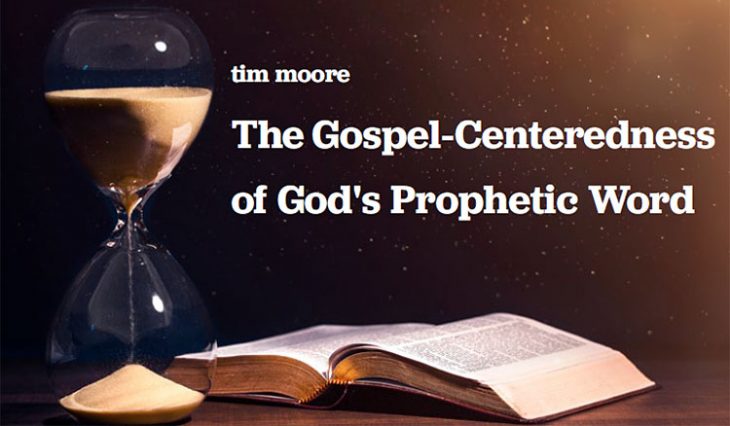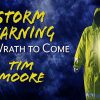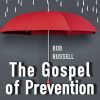The bylaws of Lamb & Lion Ministries sums up our mission in a succinct Purpose Statement:
To proclaim the soon return of Jesus to as many people as possible as quickly as possible.
Even more specific purposes include:
- Pointing unbelievers to repentance in Jesus
- Calling believers to a commitment to holiness and evangelism
- Teaching the fundamentals of Bible prophecy
- Challenging the Church to stand for righteousness
Obviously, our overarching mission is tied to additional evangelistic goals. As we tell pastors and churches who consider inviting a Lamb & Lion evangelist to speak, we seek to motivate urgent evangelism, holy living, and a focus on our soon-returning King — Jesus Christ. Even the word “evangelist” conveys our calling to lead others to faith in Christ.
The primary job of an evangelist is to spread the gospel of Jesus Christ to the world.
So, while we specialize in teaching the truths of Bible prophecy, our ultimate objective is twofold:
- To warn unbelievers to flee from the wrath to come and into the loving arms of our Savior.
- To encourage followers of Christ to live in a manner that honors our heavenly Bridegroom — even as we anticipate His soon return.
Those objectives center around the Gospel of Jesus Christ.
The power of prophecy in the lives of unbelievers/message to unbelievers.
John asked the crowds who came to be baptized by him, “You brood of vipers, who warned you to flee from the wrath to come?” (Luke 3:7). That question resonates down through the centuries and should motivate every follower of Jesus. Who will warn those who are hostile to God that His wrath abides on them (John 3:36)?
The Bible tells us that the path toward destruction is wide, but, certainly, some who hear the Gospel will enter the narrow gate that leads to life (Matthew 7:13-14). The message of the Cross is salvation to those who believe, but to those who reject God’s gift of deliverance from the wages of sin it is foolishness. Paul said, “the word of the cross is foolishness to those who are perishing, but to us who are being saved it is the power of God” (1 Corinthians 1:18).
In his second letter to the church at Corinth, Paul was even more emphatic. He wrote:
Thanks be to God, who always leads us in triumph in Christ, and manifests through us the sweet aroma of the knowledge of Him in every place. For we are a fragrance of Christ to God among those who are being saved and among those who are perishing; to the one an aroma from death to death, to the other an aroma from life to life. And who is adequate for these things? (2 Corinthians 2:15-16)
Paul is an exemplar among evangelists. After his own dramatic conversion, he dedicated his life to sharing the Gospel of Jesus throughout the Roman world. He was willing to suffer greatly for that cause and to become “all things to all men, so that [he might] by all means save some” (1 Corinthians 9:22).
The connection between the Gospel and the promise of Jesus’ return is critical. In his first sermon delivered in Jerusalem at Pentecost, Peter cited prophecies by Joel and David not only to prove that Jesus was the Christ — but to emphasize the expectation of His return. That is why his message culminated with the same prophetic promise Jesus cited to challenge the Pharisees (Matthew 22:42-46). David’s messianic Psalm describes the exalted stature of the Son of David: “The LORD says to my Lord: ‘Sit at My right hand until I make Your enemies a footstool for Your feet'”(Psalm 110:1).
One of my greatest frustrations is hearing Christians — including far too many in church leadership — dismiss God’s prophetic Word as too advanced for study and contemplation by regular Christians. They exhibit in practice if not in words a misconception that only theologians with advanced degrees can grapple with promises concerning Jesus’ return.
Paul clearly did not agree. We know that he spent only a few weeks planting a church in Thessalonica, but it is obvious that he had already been sharing his expectation that Jesus would come again. Both of his letters to that church offer his responses to their inquiries about Jesus’s second coming — an anticipation they would not have had without Him telling them while He was among them.
The evangelistic power of God’s prophetic Word is obvious in other passages as well. Inspired by an angel of the Lord, Philip was led into the countryside south of Jerusalem. When he arrived there he encountered a high court official from Ethiopia — a eunuch who had just come from worshiping in Jerusalem. Inquiring about what the man was reading, Philip learned that the Ethiopian was perplexed by Isaiah’s passage about the suffering Lamb of God (Isaiah 53:7-8). Philip explained that Jesus was the fulfillment of Isaiah’s prophetic passage and the man excitedly embraced Jesus as the Christ — the Son of God (Acts 8:26-38).
Philip’s obedience to God and his willingness to “open his mouth” and preach Jesus from God’s prophetic Word made an eternal impact on the Ethiopian eunuch’s life. God’s prophetic Word is still touching hearts today.
Warning of Impending Wrath
We tend to think of positive role models as worthy exemplars. But the Bible offers us several examples of how not to act. Yet even in those episodes there are clear demonstrations of God’s grace.
Jonah was called by God to go and warn the pagan city of Nineveh that the wrath of God was about to fall. Outraged that God would offer warning to Israel’s hated foe, Jonah refused to obey. He insisted that those wicked people deserved the outpouring of God’s judgment.
Why was Jonah so appalled at the idea of warning the enemy of Israel about their impending fate? Jonah understood that God never pours out wrath without warning because He does not wish for any to perish — and he knew that inherent in the warning was an opportunity for the Ninevites to repent of their wickedness and avoid God’s righteous anger.
Instead of obeying God and crying against Nineveh (because, Jonah said in 4:2, “I knew that You are a gracious and compassionate God, slow to anger and abundant in lovingkindness, and one who relents concerning calamity”), he fled from the presence of the LORD and went down to Joppa.
Following his whale of a tale, Jonah grudgingly obeyed God’s command and warned the people of Nineveh. As he feared, they repented, and God relented. Jonah was greatly displeased. God asked him rhetorically, “Should I not have compassion on Nineveh, the great city in which there are more than 120,000 people who do not know the difference between their right and left hand, as well as many animals” (Jonah 4:11).
An infinitely better exemplar of God’s lovingkindness than Jonah is Jesus. When He gazed out over Jerusalem, the Lord wept (Luke 19:41-44). Manifesting the heart of compassion God revealed to Jonah, Jesus recognized that many of His beloved creatures would perish in their sins — willfully ignorant or callously unrepentant in spite of His offer of salvation.
With God’s wrath hanging over an unrepentant world, the urgency of warning those who are ignorant of their fate is growing every day. Some who come to understand that the wrath of God abides on them will eagerly flee into Jesus’ loving arms.
Time is of the essence. How many billions will be consigned to eternal damnation if Jesus comes today?
John the Baptist’s words in Luke 3:7 were shocking, but sometimes we need a shock to dislodge us from our complacency. Having gotten the attention of the crowds, John interacted with each person in a way that they could understand his message of repentance. His answer to the general crowd was different than his answer to the tax collectors and the soldiers, but his overarching message pointed to the coming Messiah.
About Him John said:
One is coming who is mightier than I, and I am not fit to untie the thong of His sandals; He will baptize you with the Holy Spirit and fire. His winnowing fork is in His hand to thoroughly clear His threshing floor, and to gather the wheat into His barn; but He will burn up the chaff with unquenchable fire. (Luke 3:16-17)
Far from a message of doom, John pointed to the Blessed Hope. As Luke records, “with many other exhortations He preached the gospel to the people” (Luke 3:18).
Our message that Jesus is coming soon represents a warning that will be foolishness to those who are perishing. But to those who are being saved, it offers the very power of God.
Call for Christians to Awake!
Simultaneous with offering an urgent warning to the lost, the message that Jesus is coming soon is a call for Christians to “stay alert” or even to “wake up!” This is a theme that is repeated throughout the New Testament. In Romans 13:11, Paul urged, “Do this, knowing the time, that it is already the hour for you to awaken from sleep; for now salvation is nearer to us than when we believed.”
Reminding the Thessalonians that the day of the Lord will not overtake us as a thief because we are not in darkness. Instead, he calls his fellow believers sons of light and sons of day, then encourages them this way: “We are not of night nor of darkness; so then let us not sleep as others do, but let us be alert and sober” (1 Thessalonians 5:5-6). Peter recognized the prophetic fulfillment the Gospel of Jesus represented. He wrote:
As to this salvation, the prophets who prophesied of the grace that would come to you made careful searches and inquiries, seeking to know what person or time the Spirit of Christ within them was indicating as He predicted the sufferings of Christ and the glories to follow. It was revealed to them that they were not serving themselves, but you, in these things which now have been announced to you through those who preached the gospel to you by the Holy Spirit sent from heaven — things into which the angels long to look. Therefore, prepare your minds for action, keep sober in spirit, fix your hope completely on the grace to be brought to you at the revelation of Jesus Christ. 1 Peter 1:10-13
With so much emphasis on staying sober and remaining alert, it is obvious that the Lord knew full well our human tendency. He knows that our spirits are willing but our flesh is weak. Like His own disciples in the Garden of Gethsemane, we are prone to grow weary as the hour grows late (Matthew 26:36-46). Still, He admonished the church at Sardis to “Wake up, and strengthen the things that remain” (Revelation 3:2).
Mark records that Jesus described in great detail the signs of His imminent return. He told a parable about a man who went away on a journey but left his servants in charge of his house, commanding them to stay on the alert. He summed up the point of the parable this way: “Therefore, be on the alert — for you do not know when the master of the house is coming, whether in the evening, at midnight, or when the rooster crows, or in the morning — in case he should come suddenly and find you asleep. What I say to you I say to all, ‘Be on the alert!'”
As the hour grows late, we urge followers of Jesus who are drowsy to remain alert — and those who are slumbering to wake up!
The Truth Will Set You Free
What should we be doing while we wait for our Bridegroom to come for us? Obeying His final order — “to preach the Gospel to all creation” (Mark 16:15). That is the truth that will set people free.
So Jesus was saying to those Jews who had believed in Him, “If you continue in My word, then you are truly disciples of Mine; and you will know the truth, and the truth will make you free” (John 8:31-32).
This poignant verse captures the relevance of our Gospel-centered message for the unbeliever and the believer alike. Jesus is the way, the truth, and the life, so knowing the true Truth is to know Him. And, regarding His own mission on earth, Jesus testified, “For this I have been born, and for this I have come into the world, to testify to the truth. Everyone who is of the truth hears My voice” (John 18:37).
Ensnared in a world of politics and cynicism, Pilate’s disbelieving response was, “What is truth?” (John 18:38).
Americans in particular are eager to celebrate their freedoms — especially around Independence Day. Although liberty is under attack like never before, the United States still remains a beacon of hope to most of the world. But Jesus was referring to a freedom much more precious than even what is promised in the U.S. Constitution; He was speaking of freedom from sin. Only the Gospel communicates God’s plan of salvation — offering the path from condemnation to righteousness, from rejection to adoption into the family of God.
To restate it once again: Christ was crucified for our sins. He died the death we deserve, so that by His death we can live. Isaiah foresaw God’s eternal plan:
He was pierced through for our transgressions, He was crushed for our iniquities; the chastening for our well-being fell upon Him, and by His scourging we are healed. (Isaiah 53:5)
The Spirit of Prophecy
Are you an ardent student of Bible prophecy? Does your heart thrill to hear messages from God’s prophetic Word? If so, the call on your life is clear.
Jesus told Peter to “feed my sheep.” The disciple who was sifted by Satan when his faithfulness proved lacking spent the rest of his life proclaiming the eternal faithfulness of God. He preached the Gospel.
The angelic host who escorted John the Apostle when he was caught up to heaven called himself “a fellow servant of yours and your brethren who hold the testimony of Jesus.” Are you in that in that blessed throng? If so, he would also say to you, “Worship God” (Rev. 22:9) That wise angel revealed the culmination of the entirety of God’s prophetic Word: “the testimony of Jesus is the spirit of prophecy” (Revelation 19:10).
What better way to worship God than to testify to Jesus Christ — our great God and Savior, our Alpha and Omega, the Lamb that was slain and the Lion of Judah, our soon-returning King of kings and Lord of lords.







